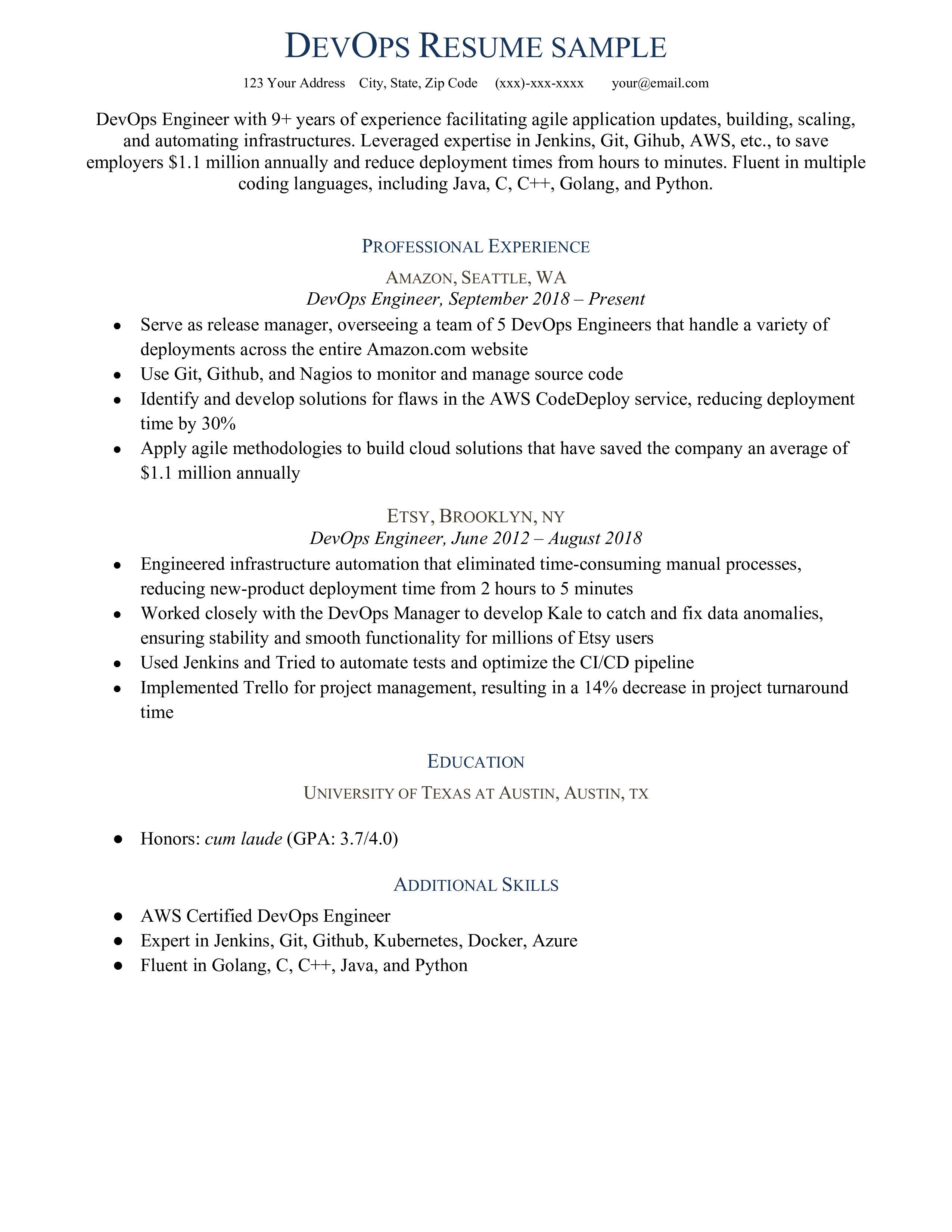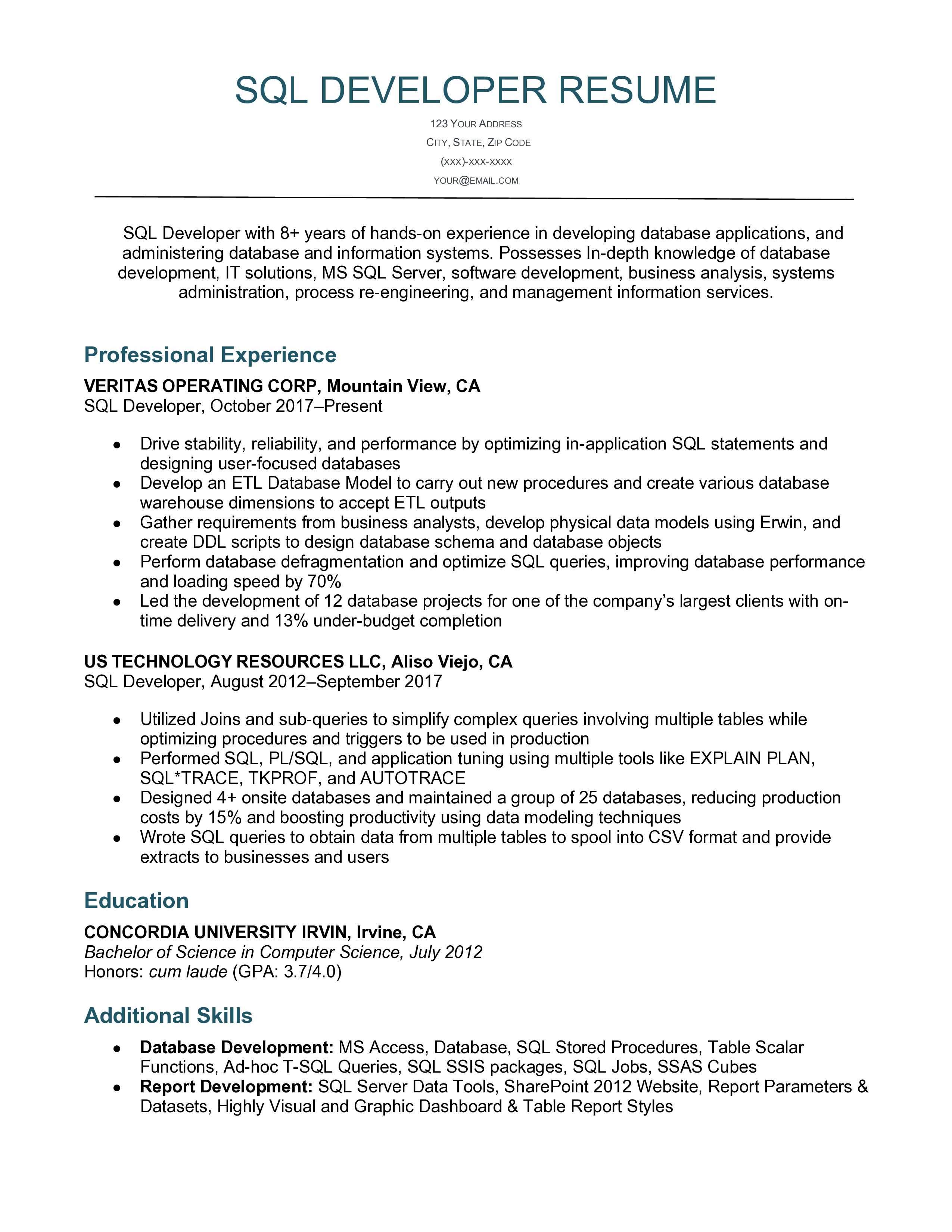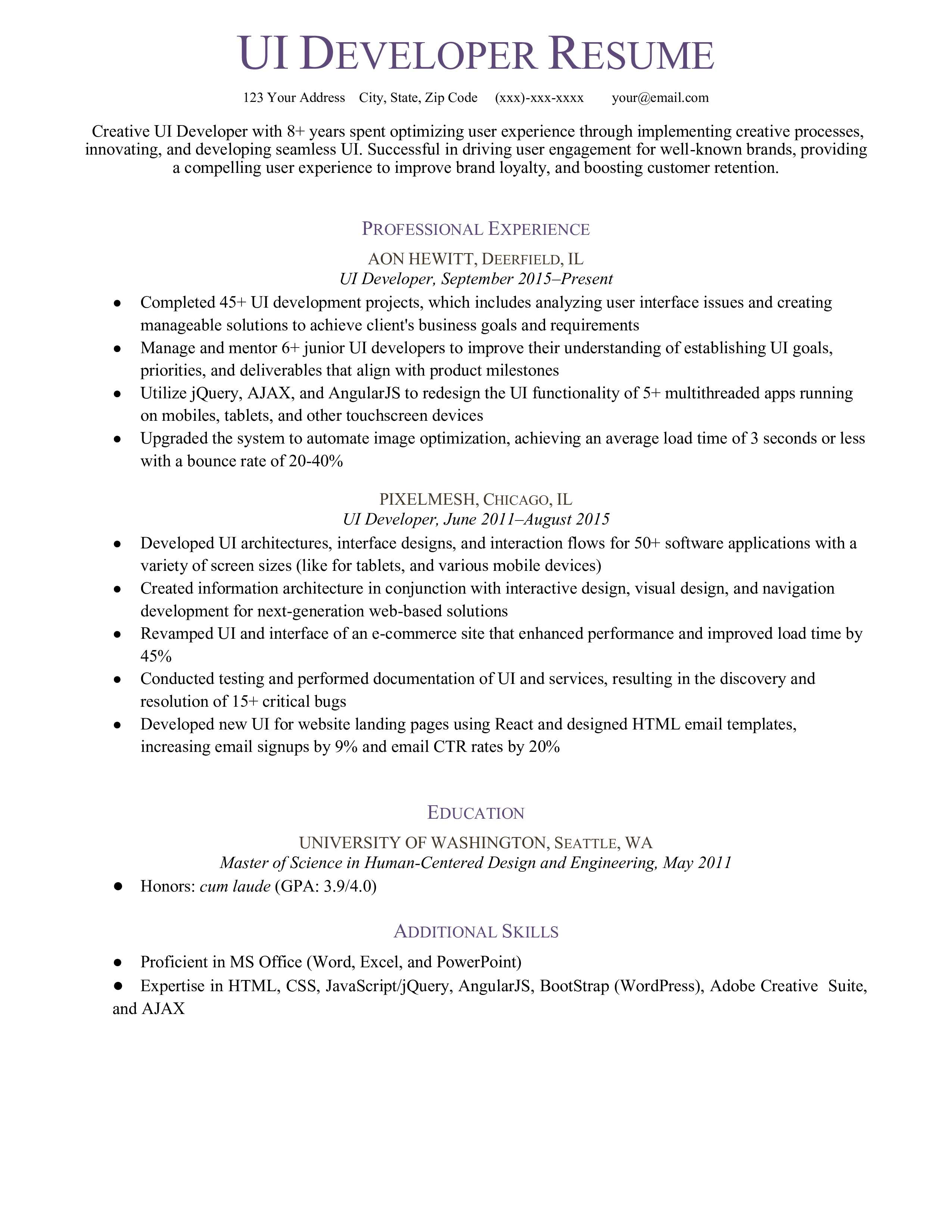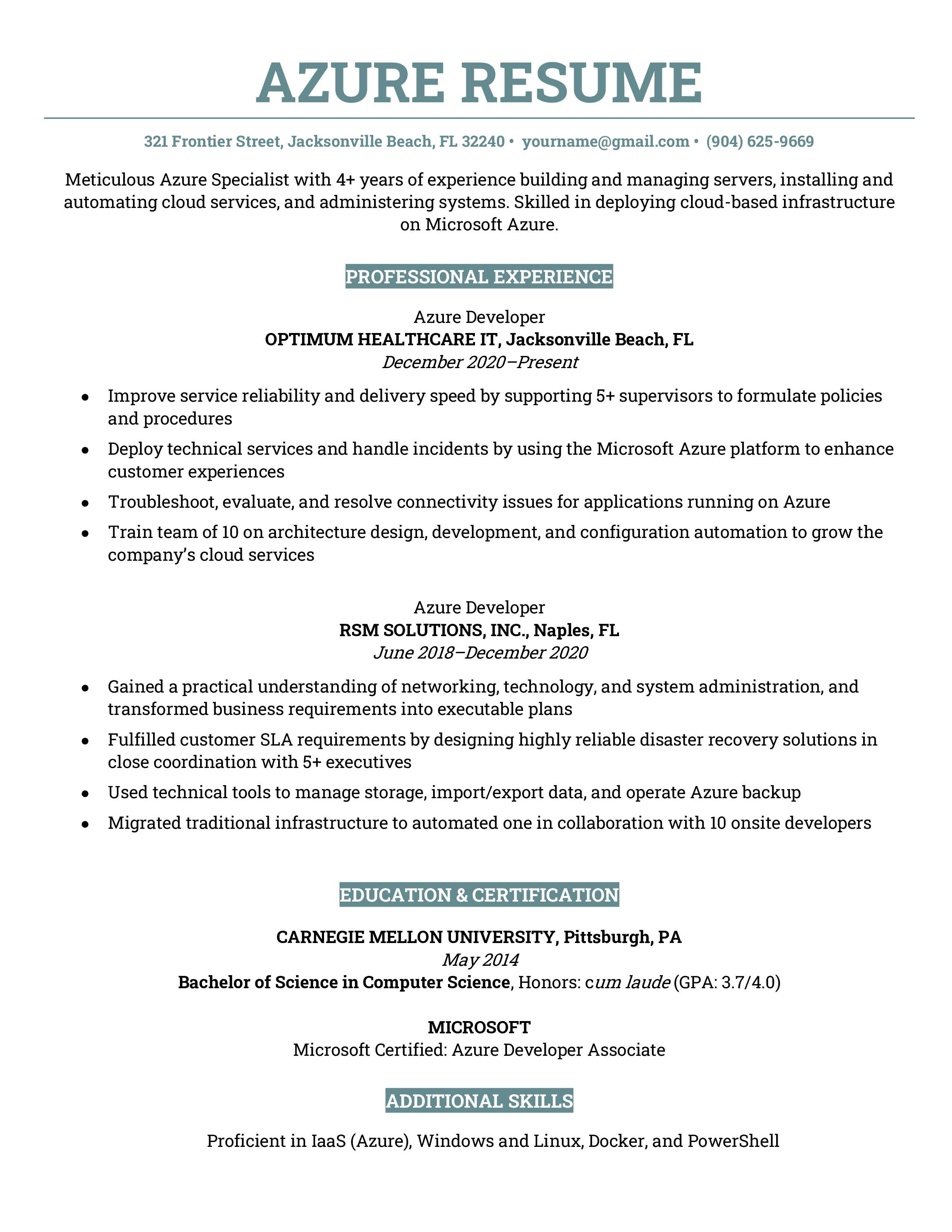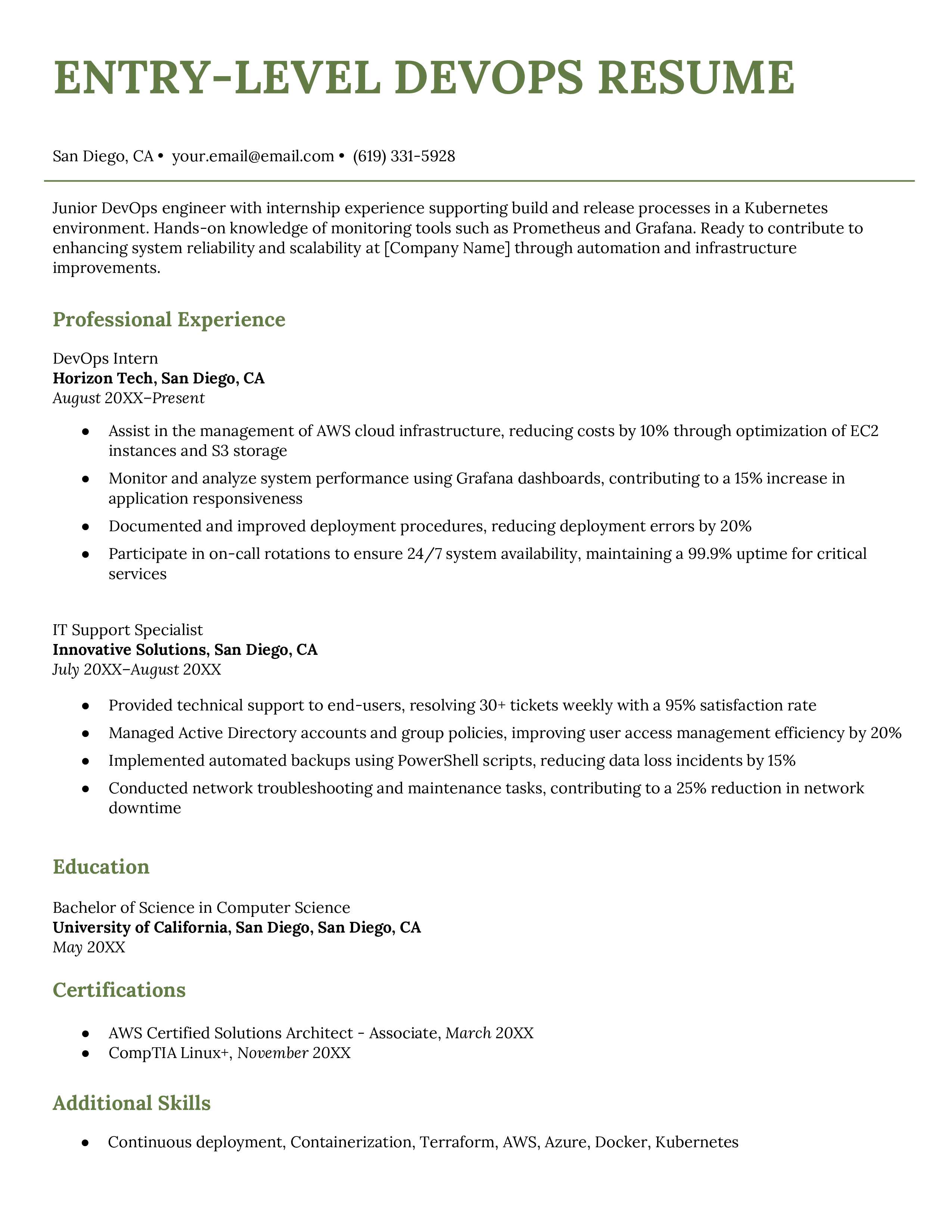DevOps Engineer Resume
Published on September 2nd, 2024
A DevOps engineer plays a vital role in bridging the gap between software development and IT operations, ensuring smooth, continuous integration and delivery of code. With the ever-growing demand for automation, scalability, and faster software deployment, DevOps engineers have become indispensable assets to tech teams.
If you are looking for jobs near me, then creating a resume that reflects both technical proficiency and collaborative leadership is key to standing out in this competitive field.
In this guide, we’ll cover everything you need to build a strong DevOps engineer resume, including core responsibilities, valuable skills, action-oriented keywords, and free DevOps Engineer Resume templates to help you land your dream job.
Key Tasks and Responsibilities of DevOps Engineer
As a DevOps engineer, you’ll be expected to streamline operations across various stages of the software development lifecycle. Below are common tasks for a DevOps engineer:
- Continuous Integration (CI) & Continuous Delivery (CD): Automating code testing, building, and deployment processes to ensure a seamless flow of development from staging to production.
- Infrastructure as Code (IaC): Using tools like Terraform, Ansible, or CloudFormation to automate infrastructure provisioning, configuration, and management.
- System Monitoring & Troubleshooting: Implementing monitoring solutions (e.g., Prometheus, Grafana) to keep track of system health and performance, addressing issues proactively.
- Collaboration Across Teams: Working closely with developers, QA, and operations teams to enhance productivity and improve workflows.
- Containerization & Orchestration: Managing applications in containerized environments using Docker and Kubernetes to ensure efficient deployment and scaling.
- Security & Compliance: Ensuring infrastructure security through vulnerability assessments, patch management, and adherence to compliance frameworks.
- Cloud Management: Deploying and managing scalable applications using AWS, Azure, or Google Cloud Platform (GCP), optimizing cloud costs, and resources.
- Automation of Testing: Implementing automated testing pipelines to speed up the identification and resolution of software bugs and vulnerabilities.
DevOps Engineer Resume Examples
Template 1
Top Hard & Soft Skills
Hard Skills
- CI/CD Pipeline Management: Expertise in creating and managing continuous integration and delivery pipelines using tools like Jenkins, GitLab, and CircleCI.
- Cloud Infrastructure Management: Deep understanding of AWS, Azure, and GCP for deploying, managing, and scaling applications.
- Infrastructure as Code (IaC): Proficiency in automation tools such as Terraform and Ansible for infrastructure provisioning and configuration.
- Containerization: Hands-on experience with Docker and Kubernetes for deploying and orchestrating containerized applications.
- Scripting & Automation: Skilled in scripting languages such as Python, Bash, and PowerShell to automate repetitive tasks and system management.
Soft Skills
- Problem-Solving: Ability to troubleshoot and resolve complex infrastructure issues swiftly, minimizing downtime.
- Collaboration: Experience working in cross-functional teams, bridging the gap between development and operations.
- Adaptability: Flexibility to work with evolving technologies and adapt to new tools and environments quickly.
- Communication: Clear and concise communication with stakeholders, ensuring alignment on project goals.
- Time Management: Expertise in managing multiple projects and deadlines while maintaining focus on high-priority tasks.
Action Verbs & Keywords
Incorporating relevant action verbs and keywords can improve your resume’s visibility, particularly for Applicant Tracking Systems (ATS). Here are some powerful action verbs for a DevOps engineer resume:
- Automated
- Orchestrated
- Deployed
- Streamlined
- Optimized
- Configured
- Managed
- Monitored
- Provisioned
- Implemented
- Reduced
- Integrated
- Scaled
- Containerized
Additional Sections to Add Value
- Certifications Section
Adding industry-recognized certifications can significantly boost your resume. In addition to AWS and Kubernetes certifications, consider mentioning:- Google Cloud Professional DevOps Engineer
- Certified Jenkins Engineer (CJE)
- Microsoft Certified: Azure DevOps Engineer Expert
- Side Projects or Open Source Contributions
Contributing to open-source projects or maintaining your own can add a lot of value. Platforms like GitHub are excellent places to showcase your work, especially if it’s related to automation tools or cloud infrastructure. - DevOps Tools Expertise
Employers are often looking for proficiency in specific DevOps tools. It’s a good idea to include a section that lists all the tools you’ve worked with, broken down by categories like cloud platforms, container orchestration, monitoring tools, and scripting languages. - Quantifiable Achievements
Where possible, quantify your achievements. For example:- Reduced deployment times by 40% through pipeline optimization.
- Improved uptime by 99.9% by implementing automated monitoring systems.
- Decreased cloud costs by 20% by introducing effective resource management practices.
Resume FAQs
1. How long should a DevOps engineer's resume be?
For experienced professionals, a two-page resume is generally acceptable, especially when highlighting multiple projects and technologies. However, if your experience is less extensive, a concise one-page resume is still effective.
2. What should be prioritized in a DevOps engineer resume?
Technical skills should take precedence, particularly showcasing expertise in cloud platforms, CI/CD, and automation. Don’t forget to emphasize collaboration and problem-solving abilities, as DevOps is highly collaborative.
3. Is it necessary to include soft skills?
Yes, DevOps is as much about teamwork as it is about technical prowess. Highlighting soft skills like communication, leadership, and adaptability can help you stand out.
4. Should I list specific tools or technologies?
Absolutely. Mentioning the specific tools you’ve used (e.g., Jenkins, Docker, AWS) can help your resume pass through applicant tracking systems and give hiring managers a clearer picture of your expertise.
Conclusion
A successful DevOps engineer resume needs to reflect a balance of technical skills and collaborative abilities, highlighting your expertise in automation, cloud platforms, and system reliability. By focusing on measurable achievements, relevant tools, and industry-standard certifications, you can set yourself apart from other candidates. Tailor your resume to reflect your experience and strengths, and don’t forget to showcase your ability to solve problems and streamline processes across the software development lifecycle.
Authors

Soujanya Varada
As a technical content writer and social media strategist, Soujanya develops and manages strategies at HireQuotient. With strong technical background and years of experience in content management, she looks for opportunities to flourish in the digital space. Soujanya is also a dance fanatic and believes in spreading light!
Hire the best without stress
Ask us how
Never Miss The Updates
We cover all recruitment, talent analytics, L&D, DEI, pre-employment, candidate screening, and hiring tools. Join our force & subscribe now!
Stay On Top Of Everything In HR

